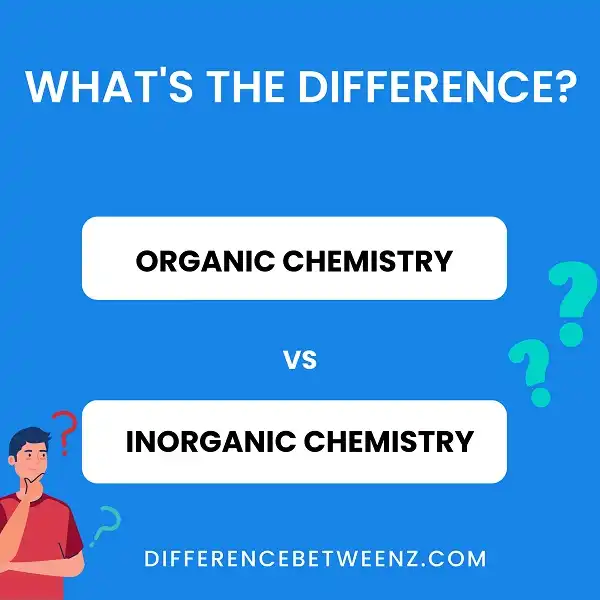Organic vs. Inorganic Chemistry
What is the difference between organic and inorganic chemistry?
Organic and inorganic chemistry are sub-disciplines within chemistry. For organic chemistry, the scientific study focuses on carbon compounds and other compounds that combine carbon with other elements; such as hydrocarbons and their derivatives.
On the other hand, inorganic chemistry deals with the scientific study of all chemical compounds, except those with carbon.
In short, organic chemistry studies all compounds that are related to carbon, while inorganic chemistry is responsible for the study of all other compounds.
Here below this post is all about the difference between organic chemistry and inorganic chemistry.
Difference between Organic and Inorganic Chemistry
When we speak of the field of study of organic and inorganic chemistry, we must know that it includes the study of the composition, structure, properties, preparation and reactions of the compounds being analyzed.
So to become an organic or inorganic chemist, an individual must understand very well all the processes mentioned above.
Organic Chemistry
Organic chemistry encompasses photochemistry, stereochemistry, hydrogenation, isomerization, polymerization, and fermentation.
Inorganic chemistry, on the other hand, covers a wide variety of topics; among which we can mention:
- electrochemistry
- crystallography
- atomic structure
- coordination of compounds
- ceramics
- chemical bonding
- acid-base reactions.
It is often said that organic and inorganic chemistry overlaps.
Organic chemistry is a very important sub-discipline of chemistry, this is due to the fact that it addresses the study of the elements that make up living things and chemical reactions related to them.
It also deals with the study of products that may arise from the combination of some organic compounds such as cleaning products.
Inorganic Chemistry
Inorganic chemistry is also an important sub-discipline of chemistry.
According to RT Sanderson, inorganic chemistry is important because it is the only discipline within chemistry that specifically studies the differences between different types of atoms.
A sample of why inorganic chemistry is so important is the studies done by many professionals in this branch; with the purpose of creating medicines that can be used for the prevention and treatment of diseases.
To become an organic or inorganic chemist, you first need a bachelor’s degree in chemistry and then a specialization in one of the two branches. From there you can get a master’s degree or a doctorate to increase your knowledge.
You can study organic or inorganic chemistry to teach in the academy or to do lab work. A chemist can earn as much as $ 30,000 to $ 130,000, depending on the position and experience he has.
It is a difficult profession, however, with patience and critical thinking you can get good results
Key differences between Organic and Inorganic Chemistry
- Organic chemistry studies carbon compounds and their derivatives, while inorganic chemistry is responsible for studying the remaining compounds.
- Organic chemistry seeks to improve some products so that they are not very harmful to humans and inorganic chemistry studies how to create compounds that can be used in the field of medicine.


